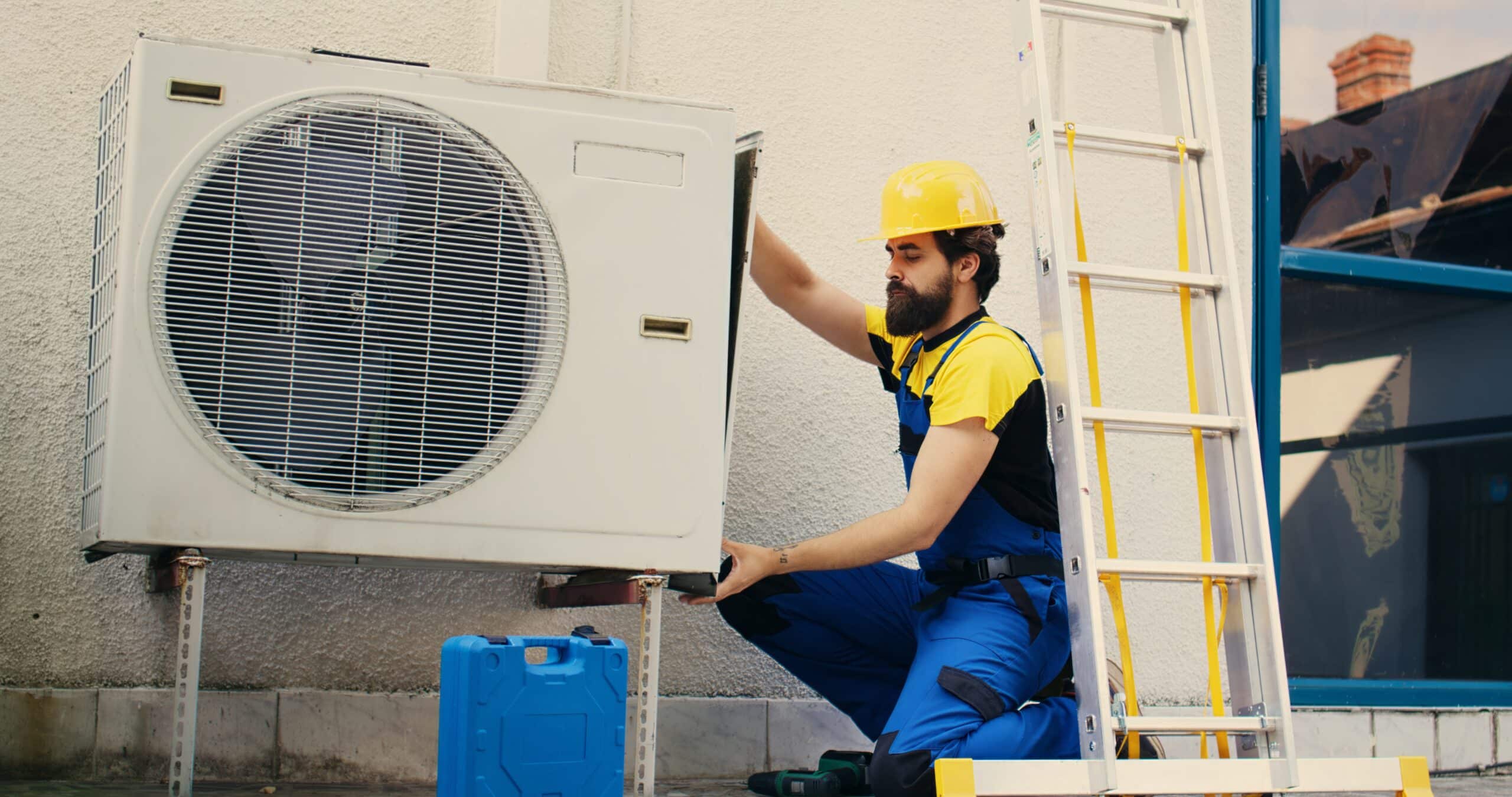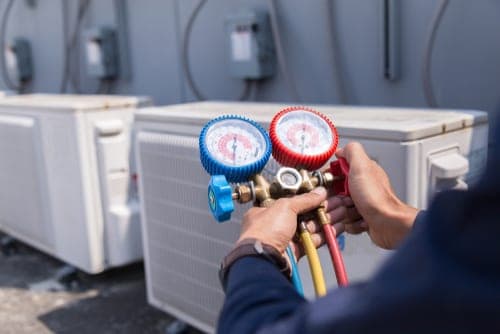Trustworthy Team at DMAKS HVAC for All Your HVAC Needs.
Exactly How to Choose the Right A/c System for Your Demands
Picking the suitable Heating and cooling system is a crucial decision that needs careful consideration of various factors. The myriad of system kinds readily available can complicate this procedure, leading one to ask yourself which course ultimately leads to ideal convenience and effectiveness.
Examine Your Home Dimension
Evaluating your home size is a vital primary step in selecting the appropriate HVAC system. The size of your home straight influences the cooling and heating capability required for reliable climate control. An a/c system that is too tiny will struggle to preserve comfy temperature levels, resulting in raised energy usage and use on the system. On the other hand, an extra-large system can result in brief biking, poor moisture control, and ineffective procedure.
To precisely assess your home size, measure the square video footage of each room, considering variables such as ceiling height and the format. In addition, think about the insulation high quality and the variety of home windows, as these elements influence thermal efficiency. Houses with open flooring plans may need various system setups contrasted to those with several split spaces.
Using the Handbook J load computation method can provide a much more exact estimate of your heating and cooling needs. This approach represent various variables, including local environment, solar gain, and occupancy patterns. By meticulously reviewing these elements, you can make sure that your picked a/c system is properly sized, resulting in improved convenience, energy efficiency, and long life of the tools.
Determine Your Budget Plan
Establishing your budget plan is a critical step in the heating and cooling system choice procedure, as it sets the parameters for your alternatives - DMAKS HVAC. An a/c system is a substantial financial investment, and recognizing your financial restrictions will aid narrow down options that fit within your methods
Begin by evaluating not just the initial purchase rate but likewise installment costs, which can differ significantly depending upon the intricacy of the task. Additionally, take into consideration ongoing expenses such as maintenance, repair services, and power consumption. A system may appear affordable initially but can bring about higher prices in time if it is less effective.
It is recommended to assign a backup fund for unexpected expenditures that might arise throughout installment or initial system adjustments (DMAKS HVAC). Additionally, discover funding alternatives or discounts that might be readily available, as these can reduce the worry of ahead of time expenses
Ultimately, having a clear spending plan enables you to engage with HVAC specialists a lot more effectively, guaranteeing you receive customized guidance that aligns with your monetary goals and home requirements. By being diligent concerning your budget plan, you can make enlightened decisions that boost comfort without jeopardizing financial stability.
Evaluate Power Efficiency
Energy performance plays a vital role in the overall performance and cost-effectiveness of your Cooling and heating system. Look for systems with a high Seasonal Power Efficiency Ratio (SEER) for cooling and a high Yearly Fuel Application Efficiency (AFUE) score for heating.
Furthermore, consider the Power Star qualification, which symbolizes that the system fulfills rigorous performance standards established by the Epa. Purchasing an Energy Star-rated heating and cooling system can result in considerable cost savings with time, specifically in locations with severe temperature level changes.
One more element click for more info to assess is the system's dimension and capability. A large or undersized unit can lead to inefficiency and increased power prices. DMAKS HVAC. Correct sizing, often identified through a Manual J lots computation, makes sure that the system operates at optimal link performance


Take Into Consideration Environment and Environment
When selecting a heating and cooling system, it is essential to think about the regional environment and ecological conditions, as these elements substantially affect the system's efficiency and performance. Various regions experience differing temperature level extremes, moisture degrees, and seasonal modifications, all of which influence heating and cooling needs.

In addition, regional ecological factors, such as air high quality and potential allergens, need to inform your option. Systems geared up with innovative filtration innovations can aid mitigate contaminants and give cleaner air. Additionally, think about the power resources available in your area-- some cooling and heating systems are much more effective when powered by all-natural gas or renewable resource sources.
Eventually, straightening your cooling and heating system selection with your regional climate and ecological factors to consider will certainly lead to enhanced comfort, boosted effectiveness, and lower power expenses.
Explore System Types and Functions
As house owners seek to maximize convenience and effectiveness, checking out the various types of heating and cooling systems and their one-of-a-kind attributes becomes important. The main kinds of heating and cooling systems include air conditioning, warm pumps, ductless mini-split systems, and heating systems. Each system uses unique advantages tailored to different needs and choices.
Air conditioning systems give consistent air conditioning throughout a home, making them optimal for bigger areas. Heatpump serve as both heating and cooling down options, using electrical energy to transfer warm, which can lead to lower power prices. Ductless mini-split systems are ending up being progressively popular due to their adaptability and convenience of setup, allowing homeowners to regulate the temperature in individual areas without substantial ductwork.

Final Thought
To conclude, selecting the appropriate heating and cooling system requires cautious factor to consider of numerous variables, consisting of home dimension, spending plan constraints, energy efficiency, local climate, and readily available system types. A comprehensive evaluation of these aspects guarantees ideal comfort and cost-effectiveness. By following a structured approach, property owners can make informed decisions i thought about this that align with their specific needs and choices, inevitably bring about boosted indoor air high quality and energy savings.